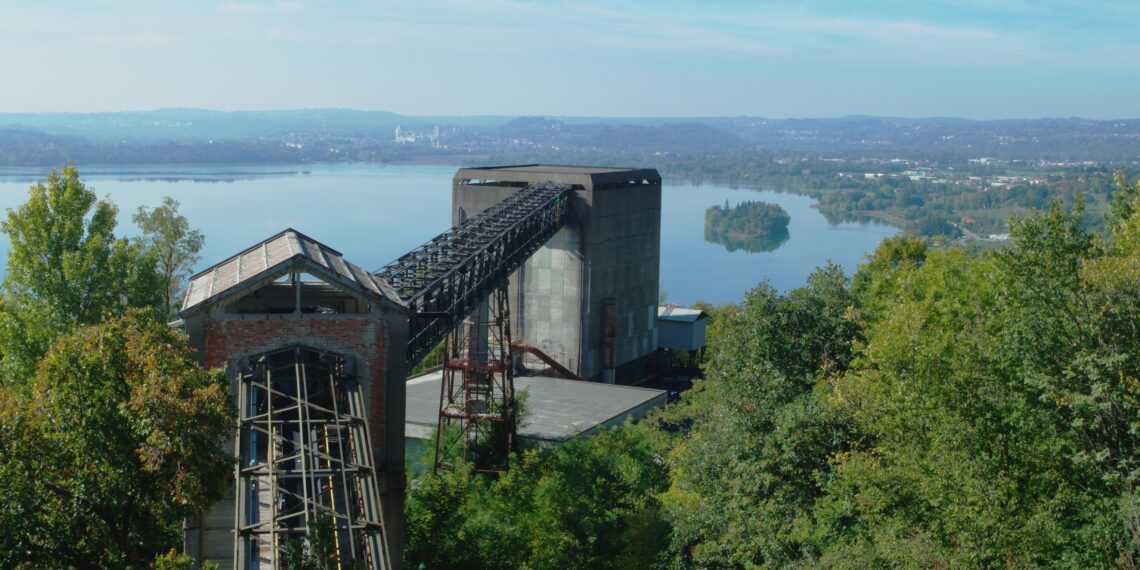Probably better known as a supplier of mining equipment than as a mineral producer these days, Italy is preparing to start up its first new metal mining operation in almost four decades thanks to a growing focus on critical and industrial minerals.
According to Stockhead, while none of Italy’s 25 previously operational base and precious metal mines are currently in operation or have been subject to modern exploration, the country still features more than 2,100 industrial mineral concessions for mines and quarries.
Altamin Limited (ASX: ATI) is planning to bring one of those 25 historical mines back to life.
A true “zombie” mine, Altamin’s Gorno project is a high-grade project located within a historic zinc and lead mining province with established infrastructure that has been idle since 1982.
Up until 1980, the Gorno underground zinc mine was owned by SAMIM (a state-owned company and part of Eni S.p.A. (BIT: ENI)) and then a unilateral decision was made to close all SAMIM owned metal mining in Italy to focus solely on oil and gas, despite there being defined mineral reserves remaining.
These days the Gorno project benefits from well-defined mineralization, strong local support, excellent metallurgy, and established infrastructure – and a market desperate for nickel, the company says.
Boosted by a new US$65M strategic funding deal secured with Appian, a global specialist mining private equity fund with expertise in financing and development of mining projects, Altamin is now fast-tracking Gorno’s development with a Definitive Feasibility Study (DFS) underway.
The company is confident Gorno has the potential to become a new globally significant zinc district with a long life of mine, located in the heart of European metal consumption, supplying much needed high-grade and clean zinc and lead concentrates.
The company is currently undertaking a significant Mineral Resource growth exploration programme and targeting a de-risked development decision leveraging existing technical studies, aiming for production Q1 2024.
The company is aiming to produce its first concentrate in H2 2024, with an average production profile 800ktpa containing 85,000dmt Zinc concentrate (63% Zn) and 14,000dmt Lead concentrate (76% Pb & 739g/t Ag).
Altamin is also focusing on Italian battery metals opportunities with its Punta Corna Cobalt Project in northern Italy. The Punta Corna Cobalt Project consists of two exploration licences (ELs), Punta Corna and Balme, which contain a series of historical cobalt, nickel, copper, and silver mine workings and several vein outcrops where the company has collected high grade (~1% to 5% cobalt) grab samples.
Drilling permissions at Punta Corna have received a positive VIA assessment with the final EL permission pending. If the EL is received the timing and financing of the ensuing drill campaign will be prioritized.
Punta Corna is central to Altamin’s battery metals strategy in Italy and will benefit from the major initiative by the EU to secure clean domestic sources of energy metals and from the European industrial investment in electric vehicle (EV) and battery manufacturing facilities.
Vulcan opens up clean, green lithium opportunity
Another Italian opportunity aimed at taking advantage of a “booming” European EV market is being pursued by Rome-headquartered Enel Green Power and Australia’s Vulcan Energy (ASX: VUL).
The pair recently signed a wide-ranging agreement that focuses on geothermal lithium research by leveraging on the development opportunities offered by the Cesano license, on the outskirts of Rome. This agreement brings together the companies’ respective expertise in geothermal energy and lithium extraction to develop joint initiatives at the site located in the Lazio region and beyond.
The collaboration involves a phased approach, which in a first scoping study phase will consist of assessing the potential of Vulcan’s Cesano license, a site that covers an area of 11.5km2 just a few kilometres away from Rome. According to Vulcan, the agreement relies on the synergy between Vulcan’s know-how and the industry experience of Enel Green Power, a world leader in geothermal energy with plants in Italy, Chile, and the U.S.
The partners intend to examine the prospects for further developments in geothermal lithium, starting from the area under examination but not excluding further collaborations in Italy and abroad.
“Vulcan is aiming to increase the future supply of our sustainable lithium product in response to significant customer demand, as we leverage our extensive experience in lithium extraction from heated brines to have a materially decarbonizing effect on global EV supply chains,” Vulcan’s managing director, Francis Wedin, said.
“By growing and diversifying our project development portfolio, we ultimately aim to develop a globally significant Zero Carbon Lithium™ business focused on Europe, for Europe.
“We welcome the opportunity to collaborate with Enel Green Power on the development of geothermal lithium. As the largest producer of geothermal renewable energy in Italy, Enel Green Power is a leader in its field and has strong, positive relationships in the region. We look forward to working with Enel Green Power to make a lasting and sustainable contribution to the local community,” he said.
Vulcan says Europe now sells more EVs than China and is the fastest growing EV manufacturing market in the world. It is exponentially increasing its domestic lithium-ion battery production capacity to meet this demand, making it the fastest growing lithium market in the world.
According to the company, Europe will need approximately >1,000Kt lithium hydroxide supply by 2030, more than twice the entire global market today. Europe has zero domestic production of battery-quality lithium hydroxide chemicals. 80% of current supply comes from China.
Vulcan is aiming to become the world’s first lithium producer with net zero greenhouse gas emissions. Its Zero Carbon Lithium™ project intends to produce a battery-quality lithium hydroxide chemical product from its combined geothermal energy and lithium resource, which is Europe’s largest lithium resource, in Germany.
Vulcan’s project aims to produce both renewable geothermal energy, and lithium hydroxide, from the same deep brine source. In doing so, Vulcan intends to address lithium’s EU market requirements by reducing the high carbon and water footprint of production, and total reliance on imports.












